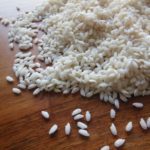Everyone reaches that point in life where finding time to cook for yourself just isn’t easy. It might be during high school, it might be during high-pressure times at work, or it might just be when your family’s busy; nobody’s got time to dabble in the kitchen! No matter what life has thrown at you, you will most certainly find times where you just need to reach for something easy and fast, and modern processed foods have offered a slew of solutions. The cup of instant noodles, for example, is a model of ingenuity in fast and simple, no-fuss dining. Instant noodles are absurdly easy and surprisingly filling, and it’s no wonder that during those busy periods in our lives, many of us find ourselves reaching for that little cup of noodles every day.
Is it safe, though, to eat instant noodles so regularly? Are there any dangers to be aware of? As instant noodle mania swept the world, rumors spread of the potential risk of cancer that an instant cup of noodles can bring. Fortunately, there’s no validity to the rumor (which we will explain further on), but what is certain is that eating a cup of instant noodles every single day is woefully unhealthy, for a variety of reasons. The sodium content, lack of nutritional value, and preservative chemicals in instant noodles make them a less than ideal choice for any meal, and to eat them consistently would wreak serious havoc on a person’s body over time.
Best Pot For Cooking Rice
Instant noodles cancer?
Let us first debunk the cancer claims surrounding instant noodles. The rumor has spread widely that eating instant noodles bares with it an increased risk of cancer, as one of the principle ingredients in instant noodles, MSG (also known as monosodium glutamate), was alleged to be carcinogenic. This is, for the most part, false: MSG is not a high-risk carcinogen. In fact, MSG has been used for over a century in many Asian countries to enhance the flavors of a variety of dishes. MSG gained popularity in Vietnamese food during the Vietnamese/American War: when food rations were sparse, Vietnamese would flavor their foods with MSG to add a savory flavor to soups and noodles in lieu of other, more substantial ingredients. MSG has made its way into many processed foods, and the myth that it directly causes cancer is simply that: a myth. Now, that’s not to say that MSG is “healthy:” it is a sodium, and any food that’s high in sodium bares with it serious health risks. But to say that the MSG in instant noodles has a causal link to cancer is incorrect.
Instant noodles health risks?
The purpose of MSG in instant noodles, though, is to give the product an unnaturally long shelf-life (and this it does, very, very well). Alongside MSG in instant noodles, you have a chemical called tertiary-butyl hydroquinone or TBHQ, a preservative derived by the petroleum industry. Both MSG and TBHQ are incredibly high in sodium – further, the flavoring packets, or “sachets” that come with instant noodles are essentially a packet of salt unto themselves. Together, this becomes a dish loaded with salt, and high-sodium dishes eaten with any degree of regularity become problematic to our health. High sodium intake can increase risk of cardiac events and cause high blood pressure, especially among individuals susceptible to high blood pressure already. Eating the amount of sodium present in instant noodles on an occasional basis is fine, but eating this high-sodium dish regularly will have deleterious effects on one’s health.
Instant noodles nutrition?
What’s perhaps more concerning, though, about instant noodles is not what’s contained within the cup, but what isn’t. Instant noodles and the little sachets of flavor that come with them are of almost no nutritional value at all. They contain sodium, sugar, fatty acids and trans-fats, but contain no healthy fats, protein, iron, or any other worthwhile vitamins or minerals that a healthy body needs. The noodles themselves are most often made out of “maida,” a refined, bleached, wheat flour derivative that’s been stripped of any nutritive value. You’d almost get as much nutritional value from a bowl of cardboard.
Now, a lot of people “hack” their instant noodle bowls by using the noodles and flavor sachets as a base and adding various proteins, vegetables, sauces or other additions to the dish. You do yourself a tremendous favor by hacking your instant noodle bowl – adding proteins and veggies is definitely one way to increase the nutritive value of this time-friendly, budget-friendly snack. But of course, in doing so you may jeopardize the time-friendly and budget-friendly nature of the product in the first place. To leave the instant noodle dish as is when purchased, however, and eat this and only this on a recurring basis is undoubtedly bad for your health. The lack of nutrition in the dish, coupled with its incredible sodium content, will over time cause the diner to suffer from malnutrition. In fact, experts predict that 30 days of nothing but instant noodles could actually kill a person. So do yourself a gigantic favor: vary your meals.
Other Resources:
Helpful Links
Wrapping Up:
Eating Ramen Daily Is Bad
The concerns of regular instant noodle consumption shouldn’t deter you from enjoying the dish altogether. For years, adults and children alike in many Asian countries have enjoyed the benefits of the instant noodle dish (recognizing, though, that these are budget-based benefits and not health benefits). You’re not going to hurt yourself in any way by occasionally indulging in something that’s so fast, so easy, and so tasty. But know that these meals aren’t doing anything significant for your health, and that you need to supplement meals like these, which lack any notable nutritional value, with more substantial meals. Rely on protein-heavy and vegetable-heavy meals as your usual go-to, and save the instant noodles for rarer occasions when your time and your budget need a break.

